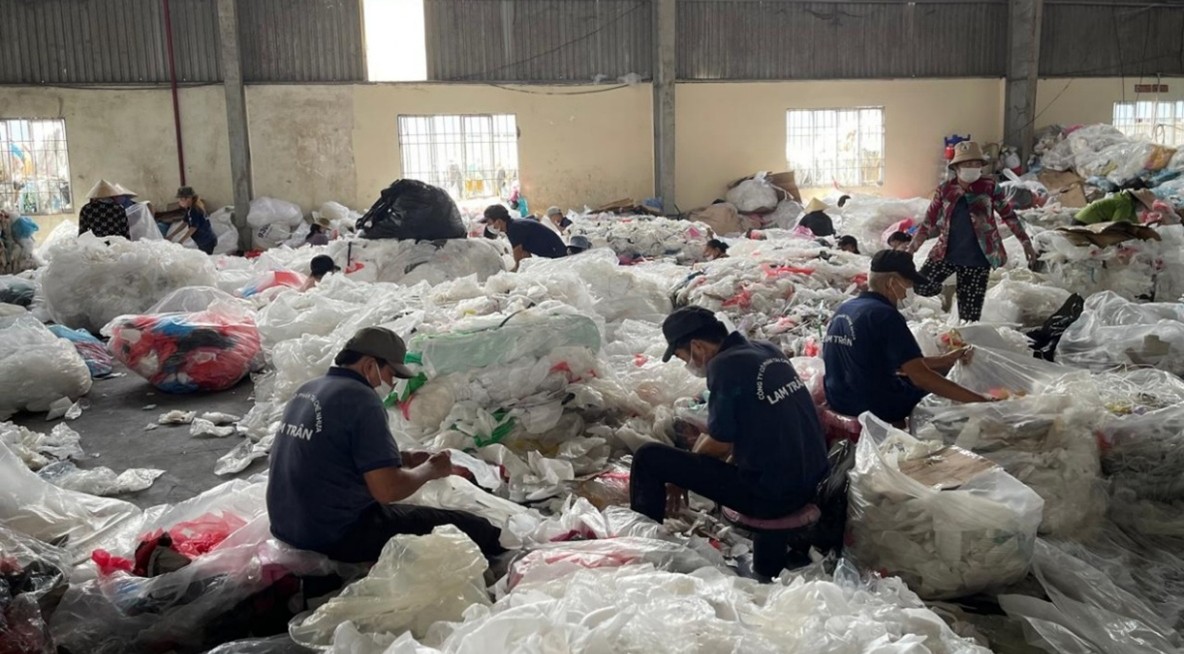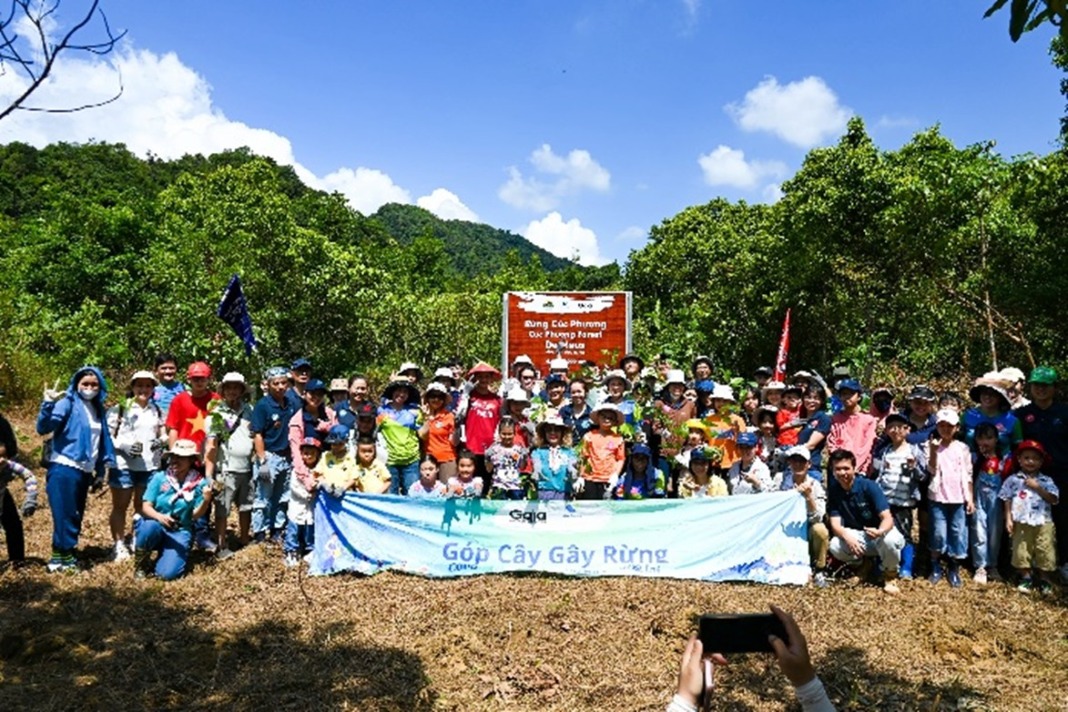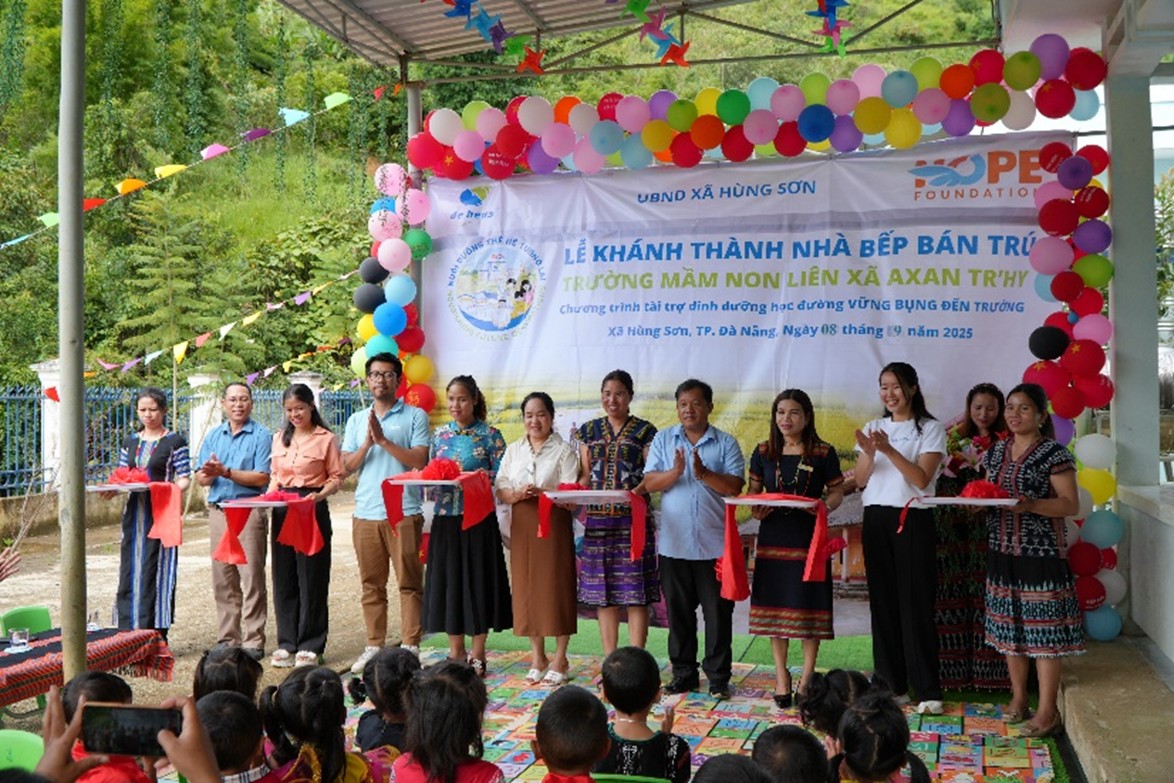When Royal De Heus, the leading Dutch animal nutrition group, entered Vietnam in 2008, it carried with it a mission: “Advancing Vietnamese Livestock.” Fifteen years later, the company has not only become the largest independent animal feed supplier in the country but has also built a development path that intertwines business growth with sustainability and responsibility for the community.
“Sustainability is part of De Heus’s DNA. We don’t see it as an extra activity, but as the way to create long-term value for farmers, customers, partners, and society,” Nguyen Thu Thuy – De Heus’s Sustainability Manager Vietnam & Asia. Her explanation conveys the company’s philosophy: growth and social impact must go hand in hand.
Accompanying farmers and the community
The company’s presence in Vietnam began with the acquisition of two feed mills – one in Binh Duong Province and the other in Haiphong City. From these modest beginnings, De Heus has expanded to 17 feed mills, 15 genetics farms, two research and development centers, and two Innovation & Training Centers, supported by a distribution network stretching across the country.
Each year, De Heus supplies more than three million tons of feed to Vietnamese farmers, a figure that reflects both scale and responsibility. Yet for De Heus, success is not measured only in numbers. From its early days, the company has sought to accompany communities, offering training and knowledge transfer programs and investing in projects that foster healthcare, education, and nutrition.
One of its most meaningful initiatives has been the decade-long partnership with the Eye Care Foundation, which has brought eye examinations and treatment to over 80,000 people in various provinces. In 2024 alone, 6,200 children and elderly residents in Vinh Long benefited from this support. “It’s not just about eyesight—it’s about giving people the chance to work, study, and live fully,” Thuy emphasized. Such initiatives underline De Heus’s belief that its role is not confined to animal nutrition but extends to the well-being of the communities it serves.
The company’s social focus also extends to children’s health and nutrition. In 2024, De Heus not only continued its eye care efforts but also sponsored VND1.2 billion for the “Vững Bụng Đến Trường” initiative, which delivered nutritious meals to 600 students. Alongside the HOPE Foundation, it built five school kitchens, including two recently inaugurated in Quang Nam in September 2025. And when Typhoon Yagi devastated several provinces, De Heus provided VND7 billion to assist victims and repair damaged schools.
What makes these efforts even more remarkable is how deeply they are embedded within the company. A Sustainability Committee meets monthly to track progress and set new directions, while leaders actively engage employees at every level. “In 2025, we launched the message ‘Nourishing Future Generations’. The leadership team visited each factory to listen and inspire. The result was a wave of ideas and initiatives coming directly from our staff,” Thuy recalled. This spirit has led employees and their families to plant 68,000 trees across national parks and protective forests, contributing to Vietnam’s “One Billion Trees” campaign.
Environmental goals are also being pursued systematically with holistic approaches to redesign, reduce and recycle feed packaging. In 2025, De Heus has committed to recycling 1,000 tons of feed packaging under the Extended Producer Responsibility, while a redesigning initiative for feed bags further contributed to reducing another 285 tons of virgin plastic. On top of this, De Heus’ flagship bulk feed delivery solutions continue to be implemented, with nearly 20% of feed products delivered to farmers using zero plastic bags.. These steps, combined with measures like switching to electric-powered forklifts and installing solar energy, generate both environmental and economic benefits.

The company’s strategy is aligned with global sustainability frameworks, including the United Nations’ 17 Sustainable Development Goals and the European Union’s Corporate Sustainability Reporting Directive. This alignment ensures transparency, accountability, and credibility in Vietnam, while also strengthening De Heus’s position in international markets.
Impactful projects
This philosophy is embodied in the company’s global program Responsible Feeding, introduced in 2018 and adapted in Vietnam to suit local needs. The strategy revolves around four interconnected commitments: providing high-quality feed to ensure safe food, building a sustainable supply chain, supporting the development of local communities, and empowering employees.
Instead of being treated as separate projects, these commitments are woven into every business activity. Thuy described it simply: “We constantly ask ourselves how we can balance growth with positive contributions to the environment and society. Responsible Feeding is our answer.”
In practice, this approach has generated a range of impactful projects. In Ca Mau, De Heus has partnered with the Department of Science & Technology to develop a circular shrimp farming model that combines Recirculating Aquaculture Systems with mangroves and seaweed.
The results have been striking: shrimp survival rates have exceeded 80%, while production costs and carbon emissions have fallen. The ambition has scaled from 100 hectares to 1,000 hectares for phase 2 in 2025, helping Vietnamese shrimp meet international standards such as ASC and BAP and gain greater access to demanding markets like the United States, Japan, and Europe.
In the Central Highlands, the S-Corn project reflects another dimension of sustainability. In cooperation with the Ministry of Agriculture & Environment and Fresh Studio, De Heus aims to source 100,000 tons of locally produced corn. Training programs held in Kon Tum and Dak Lak are helping farmers adopt better cultivation, harvesting, and storage methods, reducing reliance on imports while creating more stable livelihoods.
“This project reduces our supply chain’s carbon footprint, but more importantly, it makes farming more sustainable for local households,” Thuy explained.
Looking forwards
All of these initiatives serve a dual purpose. In the short term, they reduce operational costs through smarter energy use, packaging solutions, and logistics. In the long run, they strengthen the supply chain, reduce greenhouse gas emissions, and open new market opportunities.

By 2030, De Heus Vietnam has set clear milestones: planting 150,000 trees, training 90,000 farmers, expanding circular shrimp farming to 1,000 hectares, launching its first carbon-neutral feed mill, and cutting greenhouse gas emissions by 42%. It has also pledged to eliminate preventive antibiotics in livestock farming by 2026, an ambitious but vital step for food safety.
“These commitments are not only about business performance but also about ensuring food security and protecting future generations,” Thuy stressed. Looking ahead, she believes that De Heus’s mission goes beyond its own success. “Through Responsible Feeding, we want to build a sustainable food value chain together with customers, partners, and communities. This is not just De Heus’s responsibility—it is our shared mission to nurture a healthier, safer future generation.”









